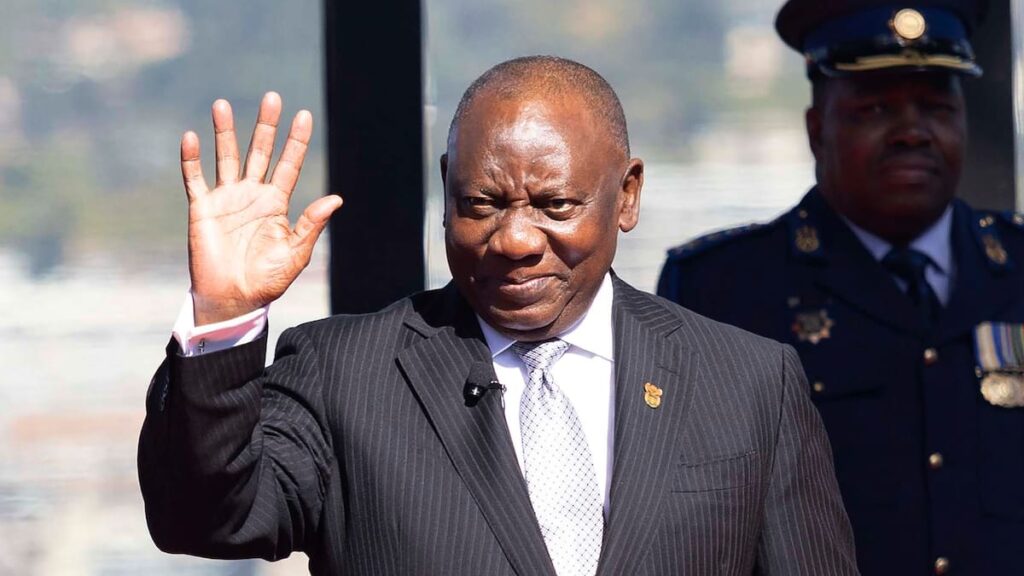South Africa’s Currency and Stock Market Soar Following Ramaphosa’s Re-election and Coalition with Democratic Alliance
In a historical turn of events that has drawn parallels to the landmark political shifts seen in 1994, South Africa’s currency and stock markets experienced remarkable surges after Cyril Ramaphosa’s inauguration for a second term as President. This uptick follows his successful negotiation of a power-sharing agreement with the opposition Democratic Alliance (DA).
On the Johannesburg Stock Exchange (JSE), investor sentiment was palpable. The JSE climbed 1.2% on Wednesday, following an impressive 3.5% rise on Tuesday. The markets, typically wary of political uncertainty, responded favorably to a coalition government that aligns the African National Congress’s (ANC) leadership with the perceived pragmatism of the DA.
The South African rand also rebounded robustly, hitting R17.9 against the US dollar. This recovery comes after last month’s elections raised fear of a coalition with radical breakaway factions, notably the Economic Freedom Fighters (EFF) and the newly formed uMkhonto weSizwe (MK) party of former President Jacob Zuma—both of which have agendas that include nationalizing critical institutions.
John Biccard, portfolio manager at London-based asset management firm Ninety One, encapsulated the market mood: “We saw a massive bounce. We’ve had pretty much the best outcome for the markets that you could have hoped for.”
The ANC, after losing its majority for the first time since the end of apartheid, sidestepped the alarming prospect of aligning with the EFF or MK, whose policies could have destabilized investor confidence. Busi Mavuso, CEO of Business Unity South Africa, echoed the positive sentiment, saying the coalition with the DA has “sparked confidence among businesses and investors that the country has a historic opportunity to make a big leap forward.”
The backdrop of renewed optimism is accentuated by a five-year period marked by stalled economic reforms and persistent power outages. Analysts note that the recent 84-day streak without electricity blackouts has contributed to the improved outlook. JPMorgan, in a recent report, upgraded South Africa’s market to “overweight,” predicting further gains if the new government maintains stability and fosters economic growth.
The rebound was evident in bellwether stocks: Shoprite, the continent’s largest supermarket chain, rose 10.5% this week, while Standard Bank and insurer Sanlam saw increases of 7.4% and 8.9% respectively. S&P Global Ratings deemed the election outcome broadly favorable for South Africa’s economic and fiscal outlook but cautioned against complacency, highlighting the challenges of maintaining fiscal discipline in a coalition government.
At Pretoria’s Union Buildings—an iconic venue that once symbolized apartheid under Hendrik Verwoerd and later democracy under Nelson Mandela—President Ramaphosa addressed the nation, acknowledging the electorate’s impatience with political infighting. However, analysts caution the fragility of the coalition. Jonny Steinberg of Yale’s Council on African Studies warned that many in the ANC might resist cooperating with the DA, viewed as foreign-influenced. Additionally, the political prowess of Zuma and EFF leader Julius Malema remains a wildcard in South Africa’s evolving political landscape.
The eyes of the world continue to watch South Africa, as it navigates this new chapter in its storied political journey.
Source: Financial Times
